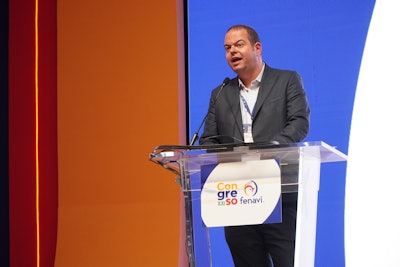
With the theme of “Sustainable poultry,” the National Federation of Poultry Producers of Colombia (Fenavi) carried out the 21st National Poultry Congress last week in Bogotá, Colombia. Honestly, as in 2022, it was, once again, a very good event.
With almost 4000 participants and 200 exhibitors, Fenavi has brought about the largest Spanish-speaking poultry congress in the world. Corferias, the venue in Bogotá, had all first-class facilities which made attendance easy, enjoying all the cool and fresh weather of the city.
Stepping away from the traditional scheme of presentations, the congress had several panel discussions, that even had speakers that are not a part of the poultry industry, but shared their insights that could be helpful. Some examples were new product developments, logistics, Colombian economics, sustainability beyond the environment and many more. They still had the traditional presentations on poultry nutrition, poultry health, incubation and so on.
As said, sustainability was the theme, highlighting the efforts the industry is making in this area, for example, good water resource management. Fenavi also announced their new egg consumption campaign, something that they do quite well.
The Colombian poultry industry is becoming a focal point. They produced 2.8 million metric tons (MT) of poultry protein in 2023. With 36 kg of chicken per capita consumption and 323 eggs per person a year, the country is above the regional average. Its poultry industry continues to be widespread and not as concentrated as its Latin American fellows. There are already multinational companies – such as Cargill – within the big players, but the rest are all Colombian enterprises. The country is also one of the largest importers of corn and soybeans from the U.S.
Colombia has been fighting against avian flu and Newcastle disease. It has declared itself free of avian flu with outbreaks only in wild birds and backyard flocks. The country has been able to export 7 million eggs to the Caribbean, with plans to export egg products. Chicken exports might need longer.
What do you think?



















